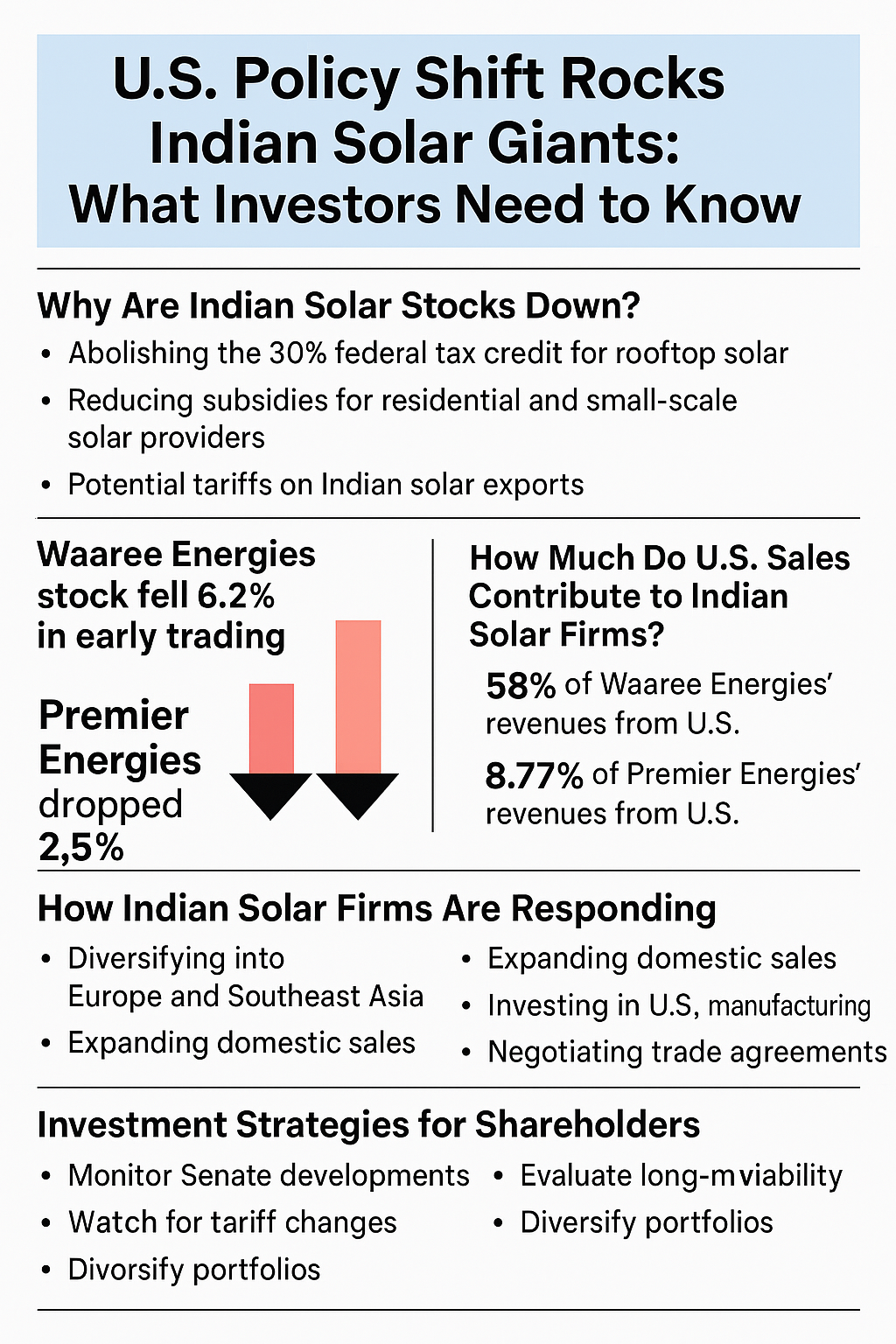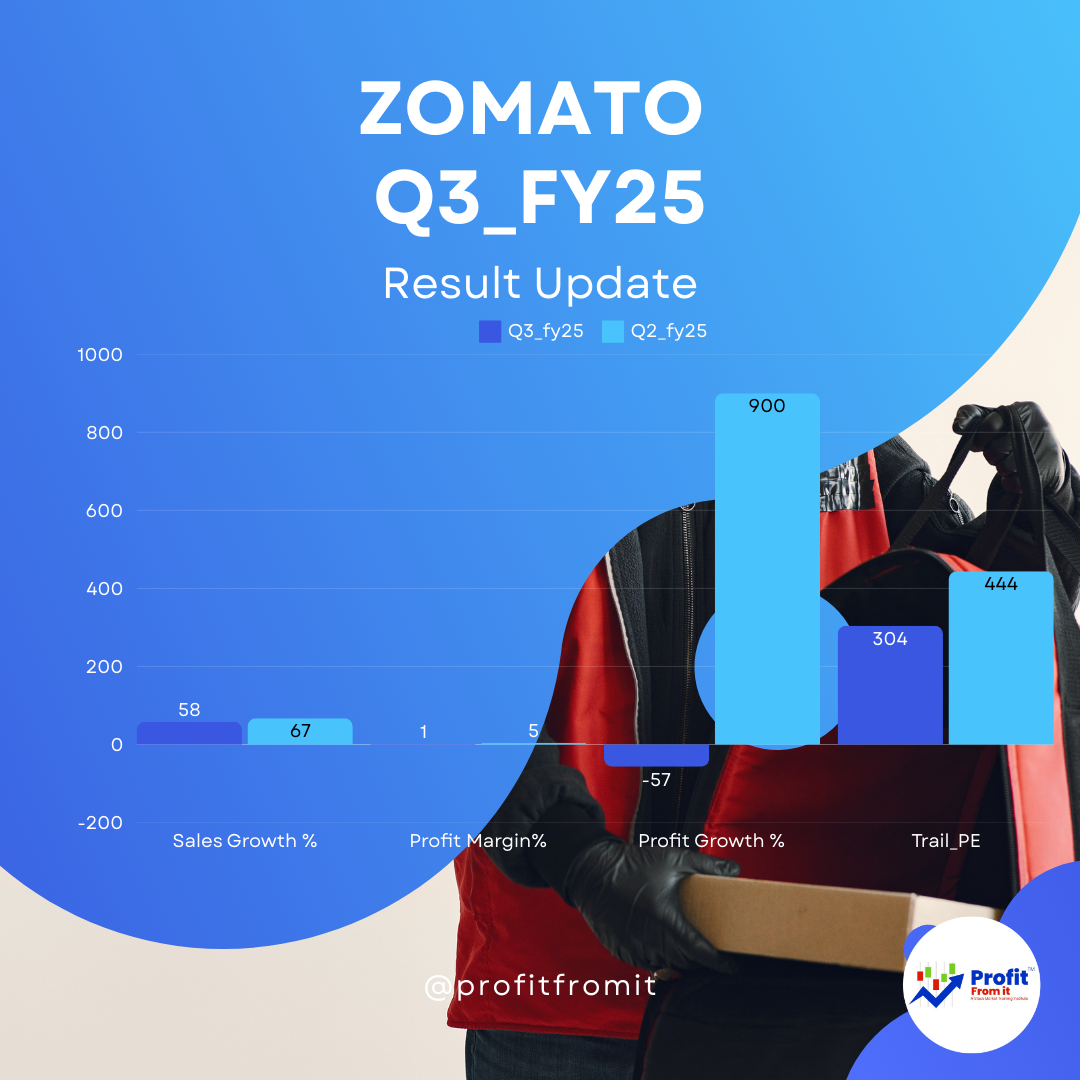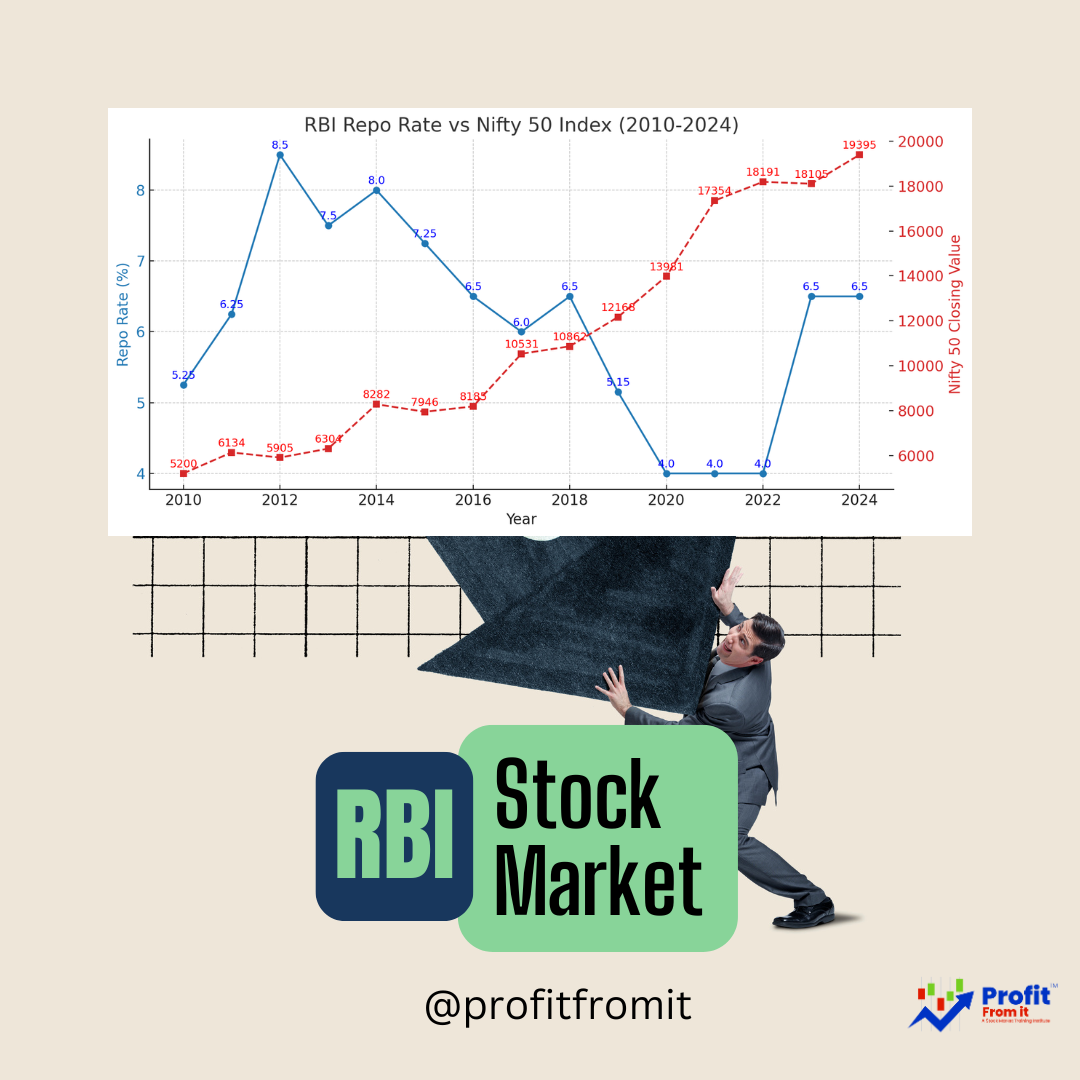
# **U.S. Policy Shift Rocks Indian Solar Giants: What Investors Need to Know**
## **Introduction**
Indian solar companies, particularly **Waaree Energies** and **Premier Energies**, have seen sharp declines following the **latest U.S. policy proposal** targeting clean energy incentives. With the **removal of federal tax credits** and potential **tariffs on solar imports**, investors must assess the short- and long-term impacts on these stocks.
## **Why Are Indian Solar Stocks Down?**
The recent downturn stems from a tax bill proposed by **former U.S. President Donald Trump**, which aims to **eliminate funding** provided under the **Inflation Reduction Act**. Key policy changes include:
- **Abolishing the 30% federal tax credit** for rooftop solar installations.
- **Reducing subsidies** for residential and small-scale solar providers.
- **Potential tariffs on Indian solar exports**, making them **less competitive** in the U.S. market.
Following this announcement, **U.S. solar stocks crashed**, with firms like **Sunrun** seeing losses of up to **37% in a single session**. Since **Indian manufacturers** rely on U.S. exports, their stocks followed suit:
- **Waaree Energies** stock fell **6.2%** in early trading.
- **Premier Energies** dropped **2.5%**.
## **How Much Do U.S. Sales Contribute to Indian Solar Firms?**
The U.S. market plays a **major role** in the revenues of Indian solar exporters:
- **Waaree Energies** generated **58% of its revenues** from export sales in FY24, with the **U.S. being its key export market**.
- **Premier Energies** derived **8.77% of its total FY24 revenues** from the **United States**.
This heavy reliance on U.S. demand makes these companies **highly vulnerable** to policy changes.
## **Potential Long-Term Effects**
The solar industry could face **major disruptions** if the bill is passed. Some key risks include:
- **Decline in residential solar installations**, making growth slower in the U.S.
- **Job losses in the solar sector**, impacting **over 100,000 workers**.
- **Indian exporters struggling** with shrinking demand and lower margins.
- **Shifts toward utility-scale projects**, with rooftop solar declining.
This bill has **passed the U.S. House of Representatives (215-214)** and is now headed to the **Senate**, making the situation **uncertain**.
## **How Indian Solar Firms Are Responding**
Faced with this challenge, companies like **Waaree** and **Premier** are adapting through:
- **Diversifying into Europe and Southeast Asia**, where incentives remain strong.
- **Expanding domestic sales**, as India’s solar module capacity reaches **100 GW by 2030**.
- **Investing in U.S. manufacturing** to bypass tariffs, such as Waaree's expansion of its **U.S. facility** from **1.6 GW to 3.2 GW**.
- **Negotiating trade agreements** to ease export barriers.
## **Investment Strategies for Shareholders**
If you're invested in **Waaree or Premier**, here’s what you should consider:
- **Monitor Senate developments**—the bill isn’t law yet.
- **Evaluate long-term viability**, as Waaree and Premier shift strategies.
- **Watch for tariff changes**, which could further impact exports.
- **Diversify portfolios**, balancing solar investments with battery storage firms.
- **Look for buying opportunities**, as these stocks may recover if adaptation plans succeed.
## **Conclusion**
The U.S. tax bill could **reshape the global solar industry**, with **Indian exporters** feeling the heat. While challenges lie ahead, firms like **Waaree and Premier** are actively shifting strategies to mitigate risks. Investors should **closely track developments**, diversify, and make informed decisions based on evolving market conditions.



 for Investors The provided chart outlines key metrics for Nifty 500 companies across different periods (FY22 t.png)





